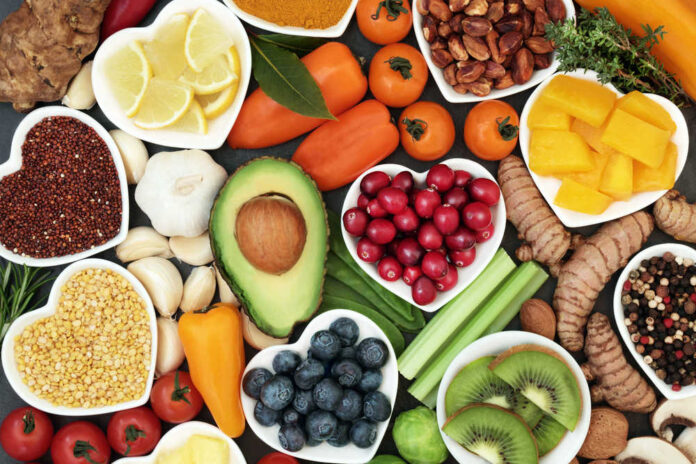
Your diet has a direct influence on your heart health.
Numerous studies have shown that certain foods can increase your risk of developing the cardiovascular disease while others can help to protect your heart.
Poor diet and nutrition are one of the leading risk factors for heart disease. In fact, it’s estimated that one in five deaths is caused by suboptimal eating patterns.
Making even small changes to your relationship with food can have a big impact on your heart health.
Here are some strategies to consider:
Reducing Excess Calories
Being overweight often comes with high blood pressure, unhealthy cholesterol levels, and atherosclerosis, all of which can put your heart health at risk.
Cutting out excess calories is one of the best ways to reduce your weight and improve your heart health.
Beware of high-calorie foods and drinks, such as:
- sodas
- fast food
- fried foods
- cookies
- pastries
- processed snacks
If you struggle to control your calorie intake, you may benefit from using a food journal or calorie-counting app.
Increasing Healthy Fats
Losing weight and improving your heart health isn’t necessarily about avoiding all fat-containing foods—it’s more about eating the right kinds of fats.
The worst kinds of fat for your heart and overall health are trans fats and saturated fats.
Trans fats are used in processed or manufactured foods and snacks to improve their texture and shelf life. These should be avoided as much as possible.
Saturated fats are found in animal products, such as red meat, poultry, milk, butter, and cheese. Saturated fats are associated with an increased risk of clogged arteries, high cholesterol, and insulin resistance (a precursor to type 2 diabetes).
The healthy fats that are good to eat are unsaturated fats, which are generally found in fish and plant-based foods, such as:
- avocados
- nuts and seeds
- whole grains
- vegetable oils (for example, olive, grapeseed, peanut)
- fatty fish (for example, salmon, tuna, mackerel)
These fats have been shown to promote heart health by helping to lower cholesterol levels and blood pressure and reducing inflammation.
So, instead of cutting out all fat from your diet, focus on replacing unhealthy fats with healthy ones.
Drink Less Soda and Alcohol, Drink More Tea and Coffee
Soda and alcohol are two of the worst beverages for your heart health.
Sugar-sweetened beverages, such as soda and fruit juice, are loaded with sugar and calories that can contribute to weight gain. They can also raise your blood pressure and interfere with lipid metabolism (the process by which fats are broken down in the body).
While small amounts of alcohol (not more than 2 in a single day and less than 10 per week) are unlikely to cause much harm, excessive alcohol consumption can damage your heart and other organs.
Green tea and coffee are much healthier drinking options. They contain antioxidants that can help to reduce inflammation and protect your heart while also providing numerous nutrients to keep your body healthy.
Try The DASH Diet
The DASH (Dietary Approaches to Stop Hypertension) diet is a heart-healthy eating plan that was specifically designed to lower your blood pressure and reduce the risk of cardiovascular disease.
The diet recommends avoiding or severely limiting:
- processed meats (deli meats, sausage, hot dogs)
- red meat
- refined carbs (bread, pastries, pasta, white rice)
- added sugars
- salt
Instead, the DASH diet focuses on increasing the intake of nutrient-rich whole foods, such as:
- fruits and vegetables
- nuts and seeds
- beans and legumes
- whole grains
The DASH diet is a great option if you’re looking for a heart-healthy diet. Talk to your primary care physician or a registered dietitian to learn more about what you can do to improve your heart health based on your unique risk factors and health needs.






















